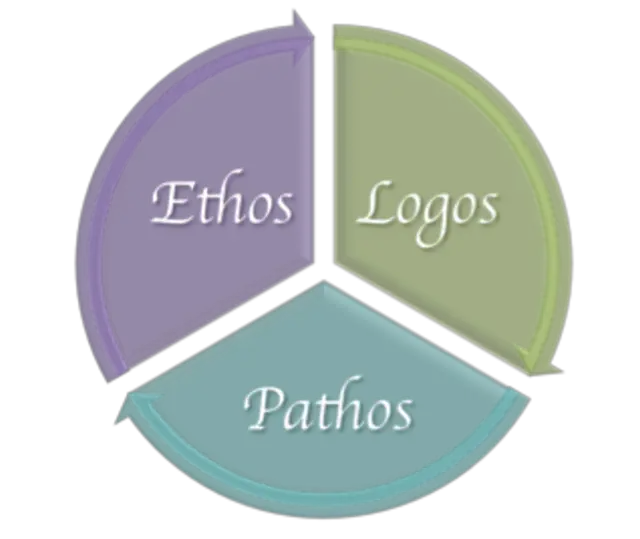It is important to know what persuades us to make the decisions we do in life whether it is in our investments, personal finance, relationships, beliefs, or politics. Aristotle is believed to have explained the three modes of persuasion that we can experience as: Ethos, Logos, and Pathos. We can think more clearly in situations if we understand what is influencing our choices.
Ethos is about establishing authority to speak on a specific subject. It is the reason to listen to and respect the speaker or writer explaining their side by how credible their argument is based on their own background, education, experience and success. Consider someone’s credibility before you listen to them, don’t take nutrition advice from unhealthy people, relationship advice from divorced and single people or financial advice from broke people. Look for the people who have done the homework and/or proven they are successful in their field. The core of ethos is trust in the source of the information. Find and stay with the most trustworthy sources of information.
Logos is the logical argument for a point of view, process, or using quantitative data to show what is true or highly probable. When you see someone persuading you through logos the source of the information is not as important as the logic and reason being explained. Most big success stories must start somewhere and that is usually by appealing to a well thought out path that is likely to work out. Logos is the focus on why something is true or false and using examples of success and systems to prove a point. Logos is filtering for and getting to the truth based on history, patterns, and data.
Pathos is an appeal to emotions and passions and tries to persuade an audience to do things based on feelings. This can be dangerous in politics, religion, and law as it can lead to emotional manipulation and first order thinking and not seeing the full picture of cause and effect or what is right and wrong from an ethical standpoint. It can be best used in sports and business to motivate a team to accomplish worthwhile and positive goals that benefit all people involved. Pathos is the appeal to use emotions as the energy to fuel action in accomplishing what may be difficult but is believed to be right. Most motivational speakers and writers use pathos to energize readers and listeners to achieve goals but be aware this is just one part of a larger puzzle. Pathos should be used last after ethos and logos are already established not in place of a firm grounding in facts.
When listening to a speaker or author use your own filters to see the authority, logic, and emotions used to persuade you. Focus on truth in what you hear and see or others will use these tools to influence and persuade you to think and believe what they want.
